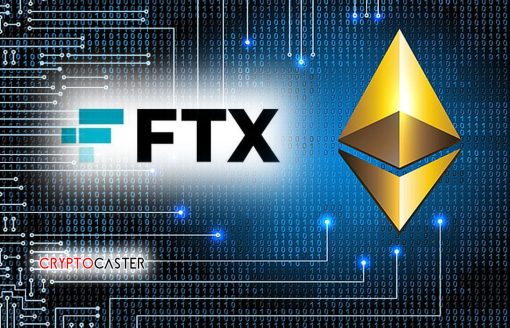In a surprising yet quietly significant move, the U.S. Treasury Department has withdrawn its appeal in the ongoing legal contest involving Tornado Cash, signaling a possible shift in how government agencies approach decentralized technologies and financial privacy tools.
Stay in the know on crypto by frequently visiting Crypto News Today
For those less familiar, Tornado Cash is a blockchain-based mixer built on Ethereum. Its core function is to obscure the origin of crypto transactions, making it harder to trace funds. This feature, while essential for those prioritizing privacy, has also attracted the scrutiny of regulatory bodies concerned about illicit finance.
The Office of Foreign Assets Control (OFAC), a division of the U.S. Treasury, sanctioned Tornado Cash in 2022, alleging the platform was being used to launder billions of dollars, including funds tied to North Korean hacking groups. The designation added the platform’s smart contracts to the Specially Designated Nationals (SDN) list, effectively making any interaction with the protocol a potential violation of U.S. sanctions laws.
CryptoCaster Quick Check:
This sparked intense backlash from developers, crypto advocates, civil liberties groups, and even some legal scholars. Many saw it as an overreach, arguing that the Treasury was targeting code, not people—raising uncomfortable constitutional questions, particularly around First Amendment rights. The Electronic Frontier Foundation and Coin Center were among those voicing concern, warning that the move set a dangerous precedent for open-source development.
Legal challenges followed. A group of plaintiffs, including software developers, filed suit claiming the sanctions were unlawful. While lower courts initially sided with the government, the Treasury’s decision to drop its appeal introduces a curious ambiguity into the mix.
Why the reversal?
Some speculate the withdrawal is less about conceding the legal argument and more about recalibrating the broader strategy. The sanctions landscape is evolving quickly, particularly as it intersects with decentralized finance (DeFi), autonomous code, and transnational money flows. The rigid, legacy-era tools of enforcement—designed for nation-states and centralized banks—are increasingly ill-suited for today’s permissionless protocols.
Treasury officials, in off-the-record conversations with policy observers, have acknowledged the challenges of enforcing compliance in systems that lack a single point of control. The smart contracts underlying Tornado Cash, for instance, continue to exist and function regardless of the legal status of any individual developer. Sanctioning an address or a piece of immutable code has become both legally and practically contentious.
This moment may represent a tacit pivot from a control-based enforcement model toward a more nuanced, perhaps risk-based framework. Future approaches could emphasize monitoring and reporting obligations for on-ramps and off-ramps—exchanges, bridges, custodians—while taking a lighter touch with protocol-level technologies. That said, the line between neutrality and facilitation remains contested.
Another factor could be international alignment. The Financial Action Task Force (FATF), the global body setting anti-money laundering standards, has struggled to harmonize rules for virtual assets across jurisdictions. The U.S. might be reassessing its position in light of global fragmentation and the risk of driving activity offshore without tangible gains in enforcement.
The tech world, meanwhile, is watching closely. The Tornado Cash episode has had a chilling effect on developers working in privacy tech. Some have gone silent. Others have relocated. A handful have gone underground. The message was clear: even neutral code might become a legal liability.
The Treasury’s retreat from the appeal doesn’t erase those concerns, but it may open the door for more constructive dialogue. Privacy is not inherently criminal. And while tools like Tornado Cash can be misused, so too can encryption, VPNs, or anonymous browsing. The challenge lies in balancing legitimate security interests with fundamental rights.
What happens next will likely shape the legal architecture around DeFi for years. Will Congress intervene to define what counts as “facilitating” illicit finance? Will regulators adopt more tech-savvy compliance models? Or will the landscape remain a patchwork of enforcement-by-punishment?
One thing is clear: the withdrawal of the appeal is more than procedural. It’s a quiet signal that policy is shifting, albeit slowly, in the face of fast-moving technology. And in the realm of digital finance, even a whisper of change can reverberate like a thunderclap.
If this article brought you clarity, insight, or value—support the work that made it possible.
At CryptoCaster, we report on Web3, crypto markets, and institutional finance with no billionaire owners, no shareholders, and no hidden agenda. While mainstream media bends toward Elon Musk, BlackRock, and JPMorgan narratives, we stay focused on what matters: truth, transparency, and the public interest.
We don’t just cover the headlines—we investigate the power structures behind them. From FTX and Ripple to the quiet push for CBDCs, we bring fearless reporting that isn’t filtered by corporate interests.
CryptoCaster is 100% paywall-free. Always has been. To keep it that way, we depend on readers like you.
If you believe independent crypto journalism matters, please contribute—starting at just $1 in Bitcoin or Ether. Wallet addresses are below.
Your support keeps us free, bold, and accountable to no one but you.
Thank you,
Kristin Steinbeck
Editor, CryptoCaster
Support CryptoCaster: The Unfolding of Money
At CryptoCaster.world, we’re dedicated to bold journalism, sharp insights, and fearless commentary across blockchain, Web3, and crypto markets. Your **Bitcoin contributions** help us stay independent and continue delivering signal over noise.
🚨 CryptoCaster does not offer investment advice. Always DYOR—volatility is real, and risk tolerance matters.
Support our mission. Contribute BTC today.
🔗 Bitcoin Address:
3NM7AAdxxaJ7jUhZ2nyfgcheWkrquvCzRm
Thank you for backing our journalistic lens as we chronicle the Unfolding of Money — a saga still being written in real time.![]()
CRYPTOCASTER HEATMAP







